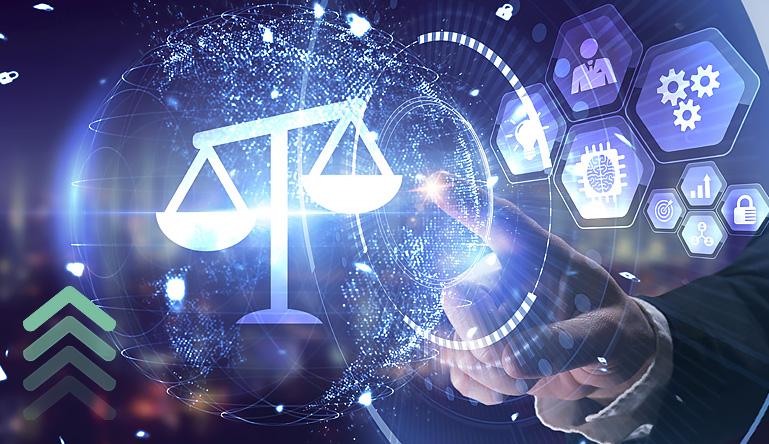-
 Executive Vice President, Catalis Courts & Land Records
Executive Vice President, Catalis Courts & Land RecordsHe leads teams delivering solutions for courts and justice systems, using experience as a prosecutor and leader in legal and tech organizations.
View all posts
The Rise of Problem-Solving Courts
The traditional criminal justice system has long relied on punitive measures to address crime, often failing to address the underlying issues that contribute to criminal behavior. For individuals struggling with substance use disorders, mental health challenges, or trauma from military service, incarceration does little to break the cycle of reoffending.
In response, problem-solving courts—also known as specialty courts—have emerged as an alternative approach, focusing on rehabilitation, treatment, and long-term behavioral change rather than punishment alone. These courts operate with a collaborative model, bringing together judges, case managers, probation officers, treatment providers, and community resources to create individualized programs that support participants in overcoming challenges while ensuring accountability.
With proven success in reducing recidivism and improving long-term outcomes, problem-solving courts are transforming the way the justice system interacts with vulnerable populations. From drug courts and veterans’ courts to mental health courts, these programs are reshaping the criminal justice landscape by offering evidence-based, treatment-focused solutions that prioritize rehabilitation over incarceration.
How They Work: A Breakdown of Drug, Veterans, and Mental Health Courts
Each type of problem-solving court is designed to address a specific challenge, tailoring interventions to meet the needs of participants. These courts operate with a multi-disciplinary approach, ensuring that justice-involved individuals receive targeted services, structured supervision, and the opportunity for rehabilitation.
Drug Courts: A Treatment-Based Approach to Addiction
- Drug courts offer an alternative to incarceration for individuals with substance use disorders by providing structured treatment, supervision, and regular drug testing.
- Participants are required to attend treatment programs, appear in court regularly, and demonstrate progress to remain in the program.
- If successfully completed, drug courts may reduce or dismiss charges, allowing participants to reintegrate into society without the long-term consequences of a criminal record.
- Studies show that drug courts significantly reduce recidivism rates, helping individuals achieve sobriety and avoid re-offending. Recidivism drops, on average, by 38%-50% among adult drug court participants.
Veterans Treatment Courts: Addressing Trauma and Reintegration Challenges
- Veterans’ treatment courts focus on justice-involved veterans who face challenges such as PTSD, substance use disorders, and homelessness.
- These courts integrate peer mentors, VA services, and community-based treatment programs to address the unique needs of veterans.
- Participants receive structured support while fulfilling supervision requirements, ensuring they stay on track with mental health care, addiction treatment, and employment assistance, according to PMC.
- Many veterans successfully complete these programs and reintegrate into their communities, avoiding the cycle of reoffending that often results from untreated trauma.
Mental Health Courts: Bridging the Gap Between Justice and Healthcare
- Mental health courts divert individuals with serious mental illnesses away from jail and into treatment programs that address their conditions.
- These courts provide access to psychiatric services, medication management, and therapy while maintaining judicial oversight.
- Participants must comply with treatment plans and case management requirements, ensuring they receive consistent care while remaining accountable.
- Mental health courts have been shown to reduce the likelihood of future arrests, offering a path toward stability and recovery for individuals with complex mental health needs.
Each of these courts addresses systemic gaps in the traditional justice system, ensuring that individuals receive appropriate support while maintaining public safety.
Key Benefits: Reducing Recidivism, Improving Lives
Problem-solving courts have demonstrated measurable success in breaking the cycle of reoffending and improving outcomes for participants. By integrating rehabilitation, case management, and judicial oversight, these courts provide long-term benefits to individuals and communities alike.
Reducing Recidivism
- Traditional incarceration often leads to high recidivism rates, as individuals return to the same environments, challenges, and lack of support that led to their justice involvement.
- Problem-solving courts address root causes such as addiction, untreated mental illness, and trauma, giving participants the tools they need to avoid re-offending.
- Studies show that graduates of specialty court programs are significantly less likely to be re-arrested compared to individuals who go through traditional sentencing.
Improving Access to Treatment
- Many justice-involved individuals lack access to healthcare, substance use treatment, and mental health services.
- Specialty courts remove barriers by connecting participants with treatment providers, social services, and employment programs.
- This holistic approach helps individuals build a foundation for long-term success.
Strengthening Community Safety & Well-Being
- By focusing on rehabilitation rather than punishment, problem-solving courts help create healthier, more stable communities.
- Successful participants become productive members of society, reducing the burden on law enforcement and correctional facilities.
- Community engagement initiatives—such as peer mentorship programs, employment assistance, and housing support—ensure that individuals have the resources they need to thrive.
The success of problem-solving courts highlights their vital role in justice reform, proving that treatment-based interventions lead to better outcomes than punitive measures alone.
Technology’s Role in Supporting Specialized Courts
As problem-solving courts continue to expand, technology is playing an increasingly important role in streamlining operations, enhancing collaboration, and improving case management. Digital solutions ensure that court teams, treatment providers, and supervision staff can efficiently manage cases while maintaining data security and compliance.
Automating Case Management & Workflow
- Digital platforms track cases from referral to completion, ensuring that critical documents, treatment plans, and supervision requirements are easily accessible.
- Automated workflows reduce administrative burdens, allowing court staff to focus on program outcomes rather than paperwork.
Enhancing Collaboration Between Teams
- Specialty courts require coordination between judges, case managers, treatment providers, and law enforcement.
- Cloud-based solutions enable seamless communication, ensuring that all stakeholders stay informed on participant progress.
Real-Time Drug & Alcohol Testing Integration
- Technology allows for automated tracking of drug test results, ensuring that compliance data is instantly available to court teams.
- Automated alerts notify case managers of missed tests or violations, allowing for immediate intervention when needed.
Data-Driven Insights for Program Improvement
- Analytics tools help courts assess program effectiveness, track participant success rates, and refine interventions based on real-time data.
- By leveraging data-driven insights, courts can continuously improve outcomes and secure funding for future initiatives.
Technology has become an essential tool in modern specialty courts, ensuring that programs operate efficiently while maintaining high levels of accountability.
Catalis Specialty Courts – Empowering Justice Through Technology
As problem-solving courts continue to reshape the justice system, technology-driven solutions are essential for ensuring efficient operations, improved collaboration, and better outcomes for participants.
Catalis Specialty Courts provides a comprehensive, CJIS-compliant case management platform designed to support drug courts, veterans’ treatment courts, mental health courts, and other specialty programs. With features such as:
- Automated case tracking & phase progression management
- Seamless collaboration between court teams & treatment providers
- Integrated drug testing & supervision monitoring
- Real-time analytics & reporting to measure program success
- Secure document management & HIPAA-compliant data protection
Catalis Specialty Courts equips judges, case managers, and program administrators with the tools they need to run efficient, effective, and impactful specialty court programs.
Visit Catalis for a comprehensive list of our government/public sector solutions.


